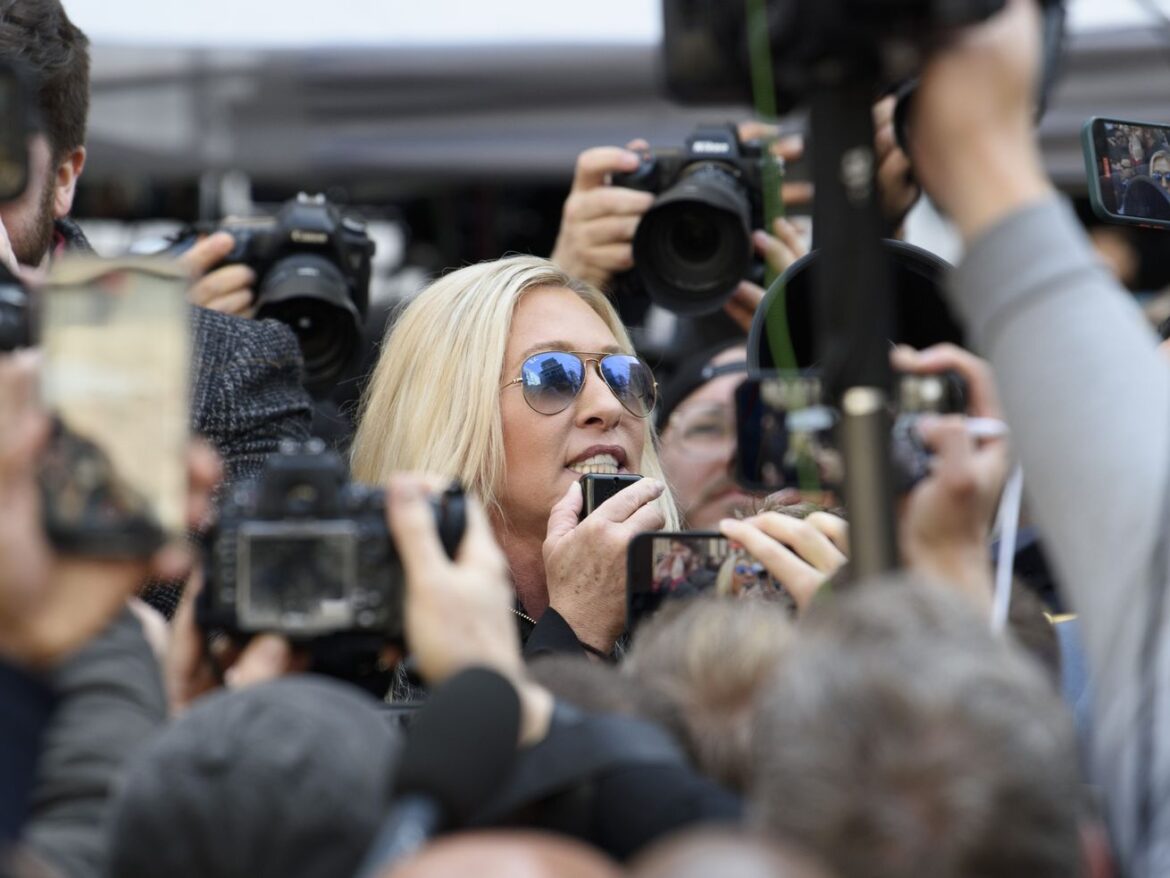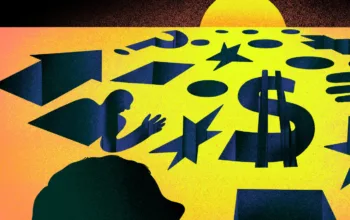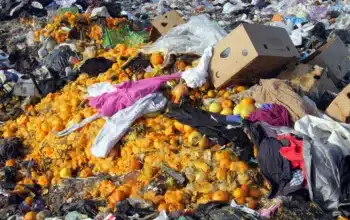Few in the GOP attended a New York rally alongside the pro-Trump lawmaker on Tuesday.
Rep. Marjorie Taylor Greene (R-GA) was one of a handful Republican lawmakers to show up at a Tuesday protest in New York City ahead of former President Donald Trump’s expected arraignment later in the day. The rally, which Greene led alongside the New York Young Republicans, drew a crowd of a few dozen Trump supporters, who appeared to be outnumbered by media at times.
The sparse attendance by other elected Republicans highlighted the limitations of what members of the party might be willing to do for Trump, even though they’ve broadly lambasted the charges against him as politically motivated and unfounded. Greene’s headlining of the event comes after Trump previously called for his supporters to “protest” the charges, a rallying cry that raised concerns of a repeat of the deadly January 6, 2021, Capitol insurrection, when the former president similarly asked supporters to contest the election results. Embattled Rep. George Santos (R-NY) was also spotted by reporters in the crowd of the protest, and was seen headed toward the courthouse where the arraignment is set to take place.
January 6’s violence — and its legal fallout — have complicated efforts to drum up support for pro-Trump protests. While many lawmakers are eager to show their support for Trump, they’ve largely chosen to do so through fundraising efforts. A previous New York protest on March 20 was also poorly attended, and protests in South Carolina and California drew small crowds this past week as well. Most GOP lawmakers appear unwilling to put themselves in a position where they could be linked to Trump-related violence, and in the face of ongoing trials for insurrectionists, grassroots supporters appear hesitant to do so as well.
The New York Young Republicans pointedly described the Tuesday rally as a “peaceful protest” that called out the political persecution of Trump’s indictment, with Greene warning participants against violence. The rally took place at Collect Pond Park in Lower Manhattan, near the New York district attorney’s office, where Trump is poised to turn himself in.
Georgia Rep. Marjorie Taylor Greene just spoke at a protest in Manhattan, said Trump was innocent (of charges that nobody has seen), in a crowded area that was overwhelmingly media + that was only heard on cameras because she was drowned out IRL by some counterprotestors. #gapol pic.twitter.com/fpcilMiR2s
— stephen fowler (@stphnfwlr) April 4, 2023
Republicans in general have harshly criticized the indictment and framed it as a way for Democrats to attack Trump yet again. Leaders like House Speaker Kevin McCarthy (R-CA), however, have previously urged “calmness” and pushed back on Trump’s calls for protest. They have assisted with the former president’s efforts to use the indictment to raise money, though. Sen. Lindsey Graham (R-SC) solicited donations on Fox News, for example, and the Trump campaign claims it’s brought in over $7 million in the past few days.
The lukewarm Republican response to Trump’s calls for protests, however, indicate that many in the GOP are only willing to go so far, particularly as the specter of the January 6 insurrection continues to loom over the party.
“I think they calculate that they can take a goldilocks strategy — stay in the good graces of their base by not attacking him, but maintain plausible deniability in the future by not attending a protest,” says American University government professor David Barker.
The lingering impact of January 6
The comments about protests, which Trump posted in March as he anticipated the indictment, follow significant fallout from the January 6 insurrection. The storming of the Capitol ultimately led to five deaths, 140 injured police officers, and hundreds of arrests. It’s also proven to be politically damaging for Republicans following an intensive investigation by Congress’s January 6 committee, with polling showing that 64 percent of Americans disapprove of the attack.
Concerns about the violence that occurred on January 6 have hung over these potential rallies as well, with New York Mayor Eric Adams calling on Taylor Greene and other protesters to be on their “best behavior.” Multiple Republican lawmakers have made similar requests of Trump supporters, like McCarthy, who said in mid-March that “there should not be any violence.”
Relatedly, pro-Trump backers have signaled reluctance about these protests amid concerns they could be a trap laid by federal agents, after more than a thousand people have been charged following the insurrection. As CNN’s Sean Lyngaas, Zachary Cohen, and Donie O’Sullivan reported, pro-Trump forums have included speculation that these demonstrations were a “set up” intended to pin blame on them for violence caused by other groups, like the antifa or antifascist movement. (On January 6, this incorrect theory was used by some Republicans to obscure the role of Trump supporters in the violence and damage that was caused.) An expert also told CNN that Trump backers may be seeking alternate routes to oppose the indictment including specific targeting of officials like District Attorney Alvin Bragg.
The combination of lawmakers’ own apparent political concerns, and Trump supporters’ practical worries about a law enforcement “set up,” seem to have dampened the involvement in protests this week.
For Republican lawmakers, there’s been an ongoing balancing act regarding their backing for Trump. If they were to actively criticize and condemn him, they risk serious electoral blowback much like former Rep. Liz Cheney (R-WY), who lost her Republican House primary. Tying themselves too closely to Trump, however, also comes with its own risks, particularly for lawmakers in more moderate states and districts. In the 2022 midterms, election-denier candidates in battlegrounds like Arizona and Michigan broadly lost. And there are still a lot of unknowns about Trump’s legal woes, as he faces other potential charges in cases involving overturning the election results and his role in January 6.
“Now they must calculate not just the current rank-and-file GOP rallying around Trump, but also what happens if more indictments tumble down in the coming months,” says University of Virginia political scientist Larry Sabato.
These collective factors, it seems, have curbed the interest in these protests for now.



